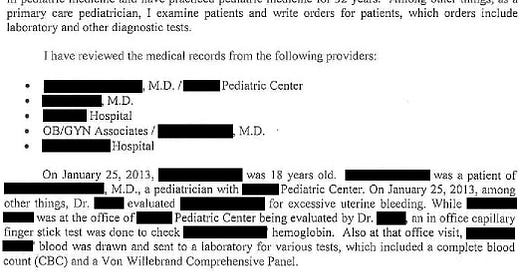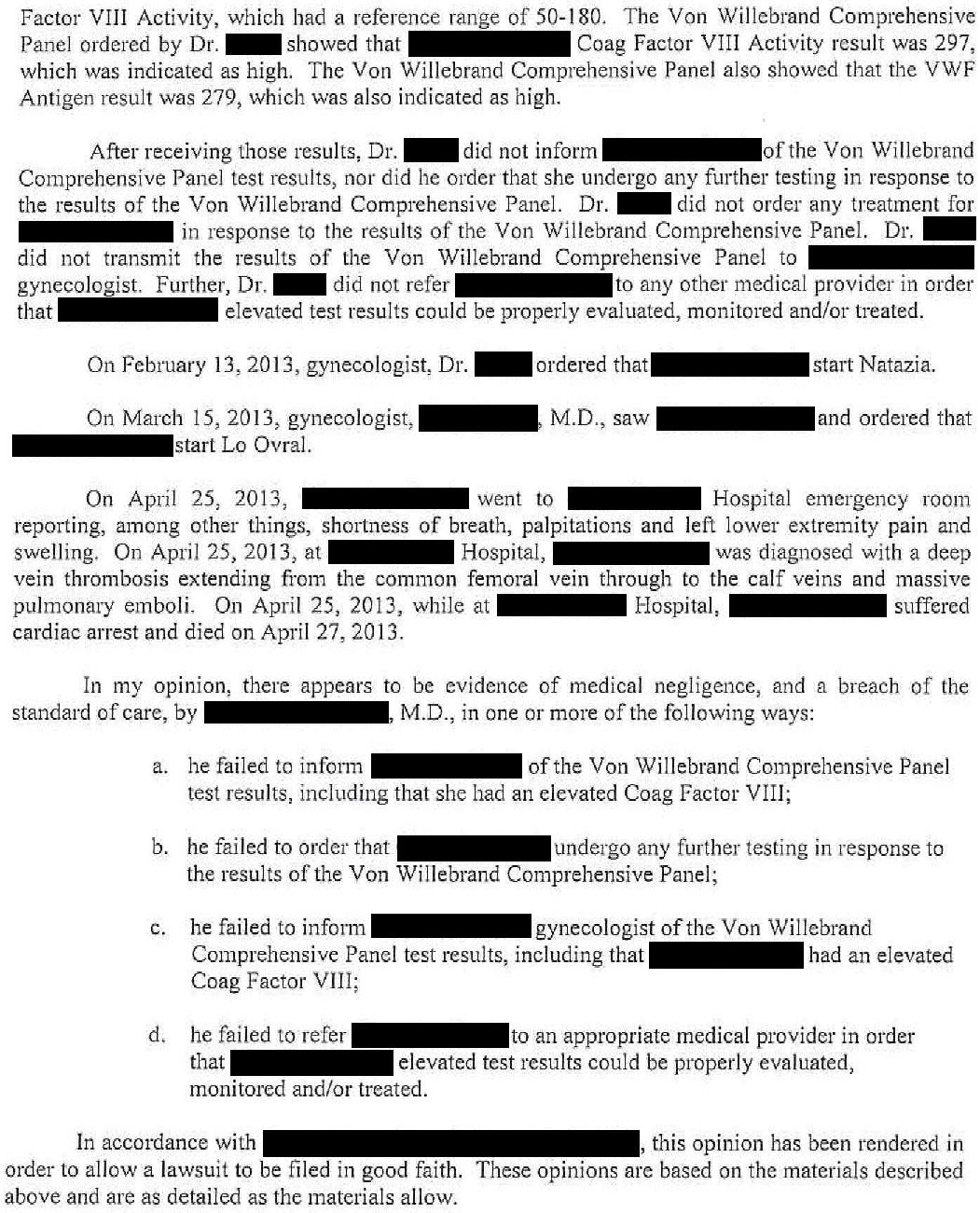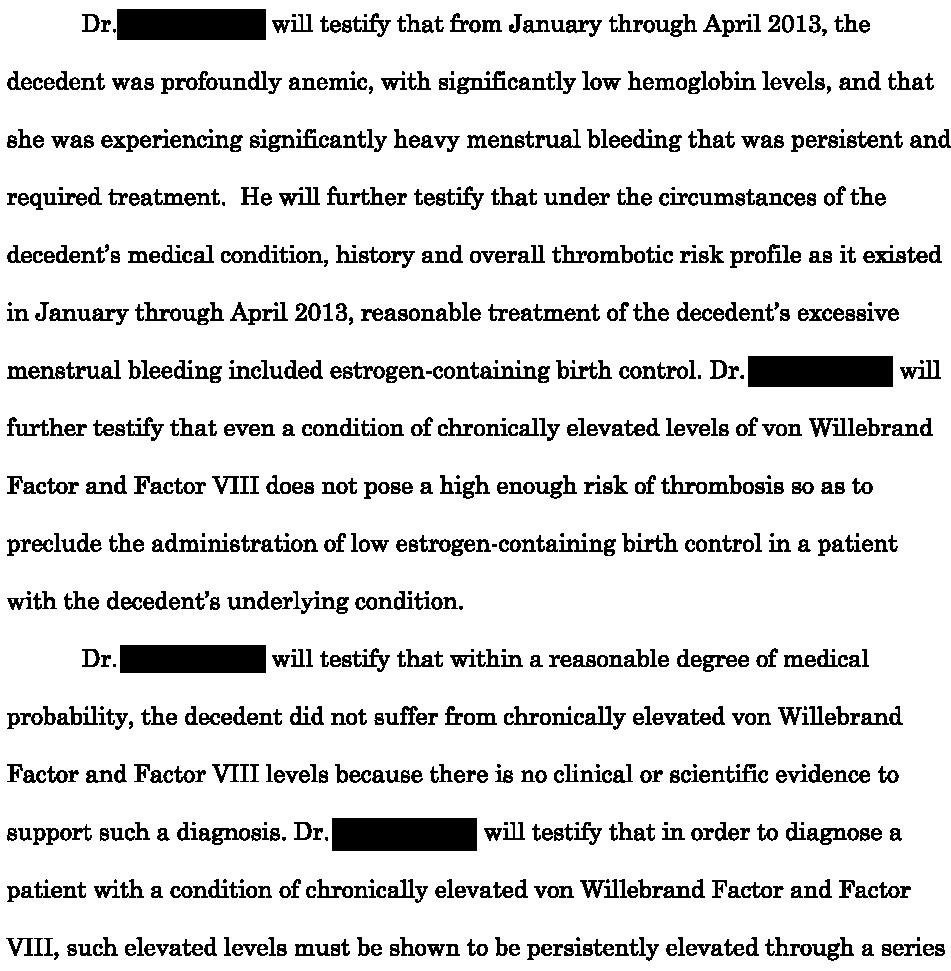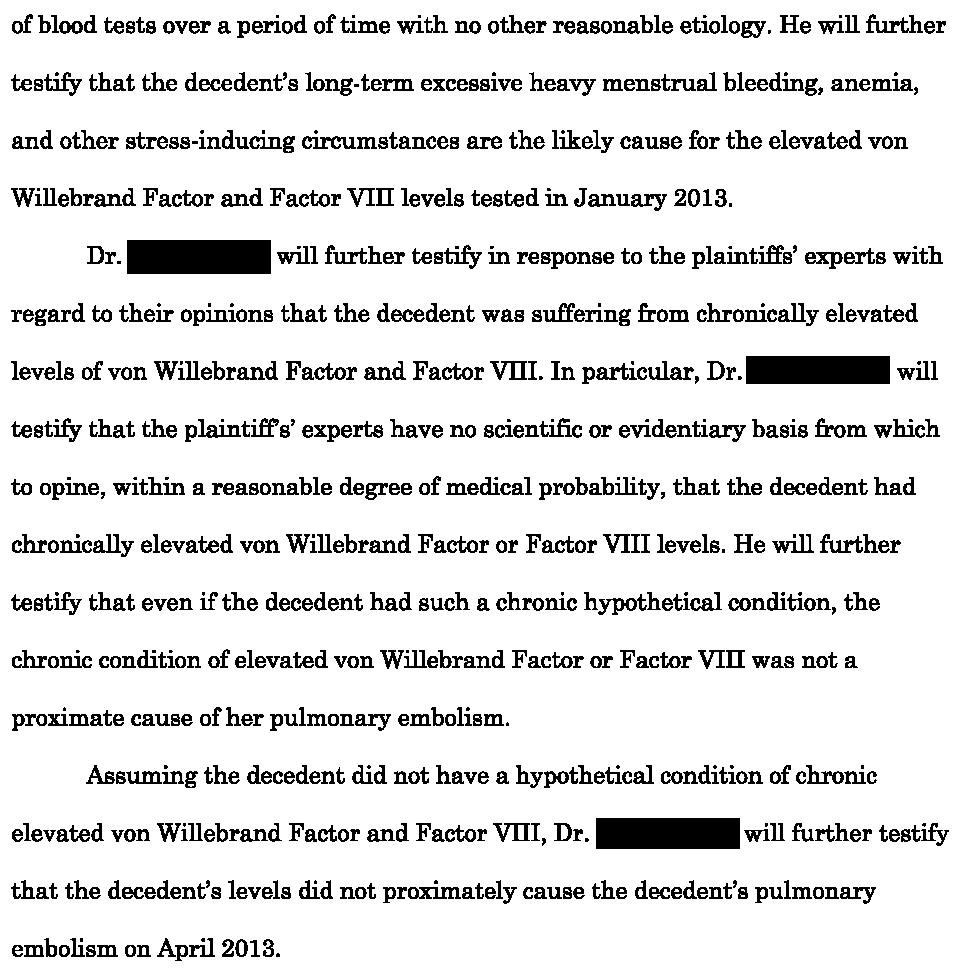An 18-year-old woman presented to her pediatrician with significant menstrual bleeding.
She was otherwise healthy but reported heavy periods for the past few years.
The pediatrician checked a fingerstick hemoglobin which was 6.0.
He also wanted to rule out von Willebrand Disease (VWD), the most common inherited bleeding disorder in the US.
He ordered a von Willebrand factor (VFW) panel and a CBC (both sent to the affiliated hospital lab and took several days for results).
She was referred to an OBGYN and discharged from the office.
5 days later (January 30) she was seen by the OBGYN physician.
He did not know that VWF testing had been ordered.
She was started on Provera 20mg qday for 14 days.
The following day, the VWF test results arrived at the pediatrician’s office.
Instead of having decreased levels of VWF (as would be expected in many forms of VWD), she actually had increased levels of VWF.
She was also noted to have increased factor VIII activity.
vWF Antigen: 279% [Reference range 50-217%]
Factor VIII: 297% [Reference range 50-180%]
Note: Court documents did not include the rest of the panel results.
The pediatrician reviewed the results of these tests.
The elevated test results did not support the diagnosis of VWD.
Both VWF and Factor VIII are acute phase reactants, and it seemed that they were transiently elevated due to the stress she was undergoing related to her vaginal bleeding.
Elevated Factor VIII activity can be associated with thrombosis, but her significant bleeding indicated that this was not a clinical concern.
Therefore the pediatrician did not forward the test results to the OBGYN.
On February 13, she followed-up with her OBGYN.
She was still bleeding heavily.
He was not aware of any potential risk factors for thrombosis.
Therefore he felt that the increased risk of thromboembolic disease from combined oral contraceptives was low.
She was switched from Provera (progestin-only) to Natazia (combined oral contraceptive).
A month later, she was still having bleeding.
She sought a second opinion from another OBGYN.
Her birth control was switched to Lo Ovral, a different combined oral contraceptive.
He also referred her to hematology, and an appointment was scheduled for May 5.
On April 25, she presented to a local ED with lower extremity swelling and severe shortness of breath.
While undergoing workup, she went into cardiac arrest.
She was resuscitated and workup revealed a DVT and PE.
Unfortunately, she never recovered and died several days later in the ICU.
Her parents contacted a law firm.
A lawsuit was filed, and the pediatrician and his employer were named as defendants.
The plaintiffs allege that the patient had a genetic predisposition to thromboembolic disease due to elevated Factor VIII levels.
They claim that if the pediatrician had sent the results to the OBGYN, they would not have started combined oral contraceptives, and she would not have died.
They did not sue either OBGYN nor the ED physician.
The defense hired multiple experts of their own.
They disclosed a summary of a pediatric hematologist’s opinion:
Join 9900+ doctors and lawyers on the email list.
Free and paid options available.
In order to bolster their case, the plaintiffs had the patient’s relatives get tested for Factor VIII issues.
They felt this would prove that her Factor VIII activity was chronically elevated due to genetic issues, not due to a transient stress reaction.
Both her mother and sister had elevated Factor VIII activity (exact results not disclosed in the court records).
The defense filed a motion asking the judge to prevent the plaintiff from using these results as evidence at trial.
The plaintiffs offered to settle the case for $2,000,000.
Ultimately, the two sides reached a confidential settlement before trial.
MedMalReviewer Analysis:
When I started reading this case, I thought the harm to the patient was going to be from hemorrhagic complications. I’m surprised she wasn’t sent to the ED after her point-of-care hemoglobin was 6.0. We’re accustomed to transfusing below 7, especially if the patient has active bleeding. Furthermore, the pediatrician did not start Provera or take any action besides referring to OBGYN.
I find it interesting that the plaintiff only sued the pediatrician, not either of the OBGYNs. They could have accused them of not requesting the patient’s records and not giving sufficient counseling about the risks of Natazia or Lo Ovral. These hypothetical accusations may not be honest, but likely would have been enough to extract a settlement from their insurers. That’s just the sad reality of our system.
I’m not an expert on Factor VIII and thrombosis, but this paper from 2001 gave a good overview. If there are any hematologists (or other relevant specialists) reading this, we’d love for you to leave a comment with your insights and opinions about this case.
If you like this case, please share it on Facebook!
Facebook blocked my publication, but this link still works and the case will be listed at the very top of the page: https://substack.com/profile/9224497-med-mal-reviewer
Attending Jobs: The MedMalReviewer Jobs Board
If you’re an EM resident or attending looking for a job, check out this job with EPPA in Minnesota. Minnesota is seriously underrated and I’ve only heard good things about EPPA.









Hematologist here, thanks for this case.
The investigations show adequate VWF levels and therefore exclude VWD. It is shocking that this patient was not managed immediately in an urgent/emergency fashion for severe anemia with intravenous iron and rapid assessment by obgyn (5 days is too much). Furthermore, this patient may have bled enough to be in DIC and consumptive coagulopathy and developed VTE as a consequence. The link between elevation in factor 8 and VTE is weak as it does not accurately predict recurrence or first thrombosis.
There has been some population level data to suggest it may predict recurrence but that evidence hasn’t been reproduced to my knowledge. Being an acute phase reactant, factor 8 levels are useless in diagnosis and follow up in my opinion and do not change management. One caveat, is that recently an Italian family with recurrent VTEs were described with a duplication of the factor 8 gene and extremely elevated levels - but this is exceedingly rare.
I'm a hematologist and I share the opinion on weak and undisclosed connection between elevated VIII and thrombosis risk. I also have a feeling that knowing the test results would not change approach of a gyncologist as there would be no evidence based argument to witheld therapies to control bleeding in such serious prolonged major bleeding episode. It is evident that serious bleeding diathesis was present despite elevated factor VIII levels which is also somewhat contradictory with the view that she had inherited pro-thrombotic condition (however possible). I treated a young female patient with VTE that developed proximal leg thrombosis due to untreated mioma of uterus due to compressive effect of the tumor. We do not know what was the cause of such serious vaginal bleeding in the described case.